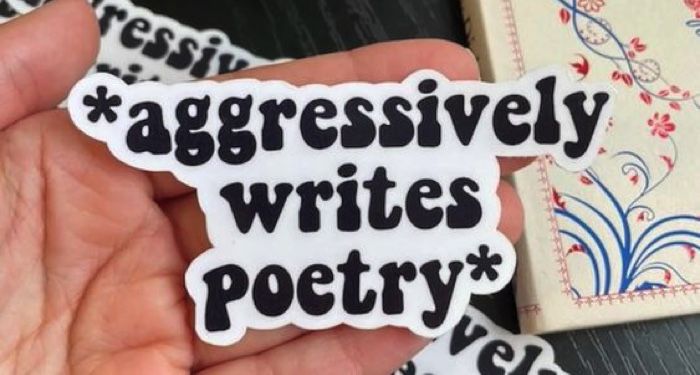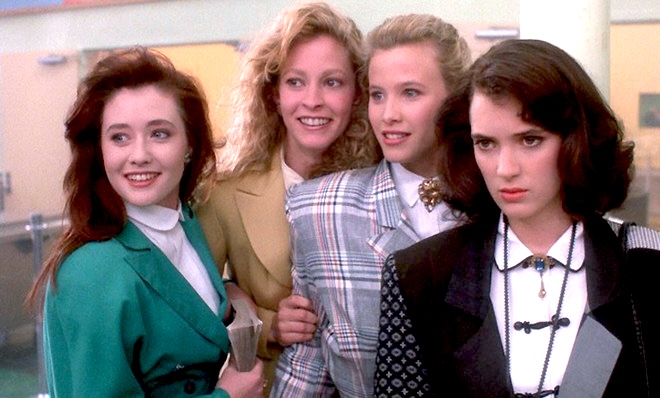Few words related to identity convey a more precise meaning than the ones Bolu Babalola uses to describe her identity: “I’m a Nigerian child, eldest daughter.” If you’re familiar with immigrant parents, you know the drill: Education is the key to securing your future, with a reliable profession (doctor, lawyer, engineer) followed by a judicious marriage by a certain age.
But Babalola, author of Honey and Spice, one of the year’s most ambitious rom-coms, didn’t stick to that script. Born in South London to two striving professionals, one a lawyer and the other a teacher, her artistic journey began at age 10. She gained attention for her writing from teachers, and the fact that she could do something she loved, then get praised for it in school and by her family, planted a seed. Like a sunflower bending toward the light, she leaned in. By 14, she was writing and sharing rom-coms with friends. So publishing her outstanding romance debut at 31 has been a long time coming.
Voice-driven and striking, Honey and Spice is Beyoncé meets Jane Austen on a British university campus. As unlikely as that blend sounds, Babalola nails it. The book’s narrator is budding media maven Kikiola “Kiki” Banjo, the host of a student radio show that dispenses pop culture commentary, offers advice about university life and dissects the Black British cliques of Whitewell University. When handsome and far-too-charming transfer student Malakai Korede enters the scene, he changes the social equilibrium. Kiki instantly identifies the new big man on campus as someone her fellow classmates should steer clear of.
“. . . because I’m a romantic, I actually don’t want romance for the sake of romance. It has to be real.”
But as Kiki gets to know him, she realizes that, despite his slick reputation, Malakai is actually beautifully and wonderfully squishy—the perfect sparring partner for the prickly yet sweet Kiki. As Kiki notices when she digs into his social media and finds a doting post about his niece, Malakai has “a softness to him. . . . There was no way he could fake the adoration with which he looked at that angel.”
Babalola also adores him. Malakai is “a kind of distortion of what we think masculinity and Black masculinity should be,” she says, speaking by video call. Malakai’s openheartedness reflects an essential part of Babalola’s upbringing, in which her father played the role of loving cheerleader. Her parents not only nurtured her independent thinking and creativity, but also shaped Babalola’s romantic sensibility: She was raised by a couple who share the exact kind of partnership and abiding love she writes about so devotedly.
Their relationship inspired Babalola’s first book, the story collection Love in Color, a kaleidoscopic reimagining of romantic myths from around the world. Though the book’s premise was dreamed up by Babalola’s publisher, it was her vision that made it a breakout hit. Love in Color became a mission statement, a calling card that introduced Babalola’s voice to the broader public. It provided an opportunity to place Black women and women of color from around the world at the center of her beloved genre. With Love in Color, and now with Honey and Spice, Babalola wants to “decolonize the concept of romance . . . because we usually see white women as the romantic heroines, [both the ones] desiring and the ones who deserve to be desired.”

With her debut romance novel, Babalola wanted to “pay homage not only to my parents’ love story but also to them as parents because their love embodies so much of my confidence.” Perhaps because she’s a woman (and Black and Nigerian), she gets asked about that aspect of her personality a lot. “Everyone wonders why I’m so confident and why I’m so sure of myself, and I’m 100% sure it’s because my parents had that confidence in me,” she says. “There wasn’t really any space for me not to believe in myself, because that was unacceptable to them.” That’s not the story one usually hears about Nigerian parents, and Babalola’s work provides a realistic, progressive portrayal of Black British life. Honey and Spice is grounded in Whitewell’s complex and tight (if imperfect) Black community, where love and joy and feminist sensibilities intertwine and vibrate off the page.
Babalola’s own academic life is another key influence in Honey and Spice. In graduate school, her focus on American politics and history through popular culture culminated in a thesis on Beyoncé’s audiovisual masterpiece Lemonade, female blues singers and Black women redefining identity through art. That blend of cultural savvy, empowerment and identity exploration pervades Babalola’s writing. What’s more, Kiki’s politics, media and culture major mirrors a concentration the author once designed for herself, and the fictional advisor who pairs Kiki with Malakai for a semester-long project is modeled on Babalola’s own grad school mentor.
Like her creator, Kiki is a bold, confident woman who already knows she’s loved and won’t settle for anything less with a man, no matter how charming. “I have such a soft spot for Kiki. I relate to her. . . . And I think a lot of Black girls relate to her,” Babalola says. “They think they need to be tough, but they’re really just sweethearts deep down.”
Read our starred review of ‘Honey and Spice’ by Bolu Babalola.
Honey and Spice is the book of Babalola’s heart, a novel she’s been developing and refining for years. As in Austen, the romance is paramount, but the ensemble cast and the broader world in which the relationship grows are half the fun, allowing Babalola to lay bare the intricacies of cliques, class and color. She weaves together humor and cutting social observations with precise, innovative language. Some of this language, such as mandemologist, Kiki’s joking term for her expertise in male behavior, Babalola invented and some of it, such as wasteman, the pejorative term Kiki initially uses to label Malakai, is Black British vernacular. Babalola says the latter term can describe “a loser, like in the generic sense of the word. But it can also just be somebody who just messes you around.” In contrast with the traditional romance rake, who is often an attractive figure who can be redeemed, wasteman serves as a hard line in the sand. As Babalola puts it, “Signifying that it’s unacceptable [to behave like a wasteman] shows that we’re defining our parameters of relationships and romantic relationships.”
This term and what it says about knowing your worth is emblematic of the author’s outlook on life, gender equality and love. Babalola is single, and over 130,000 followers on Twitter savor both her insight and her celebration of sexy, empowered womanhood. She’s a romantic visionary who hasn’t yet experienced her one grand romance, but she has seen it modeled and knows what she wants. Being willing to be single until she gets the love story she’s looking for is a conscious choice. “I am a romantic,” Babalola says. “And because I’m a romantic, I actually don’t want romance for the sake of romance. It has to be real. I don’t prioritize being partnered above all else, because I really, really respect romance and love.” The women she creates mirror the ethos she embodies. Babalola champions a romanticism rooted in trust, independence and bravery—both in Honey and Spice and as the star of her own story.
Photo of Bolu Babalola credit Caleb Azumah Nelson.







